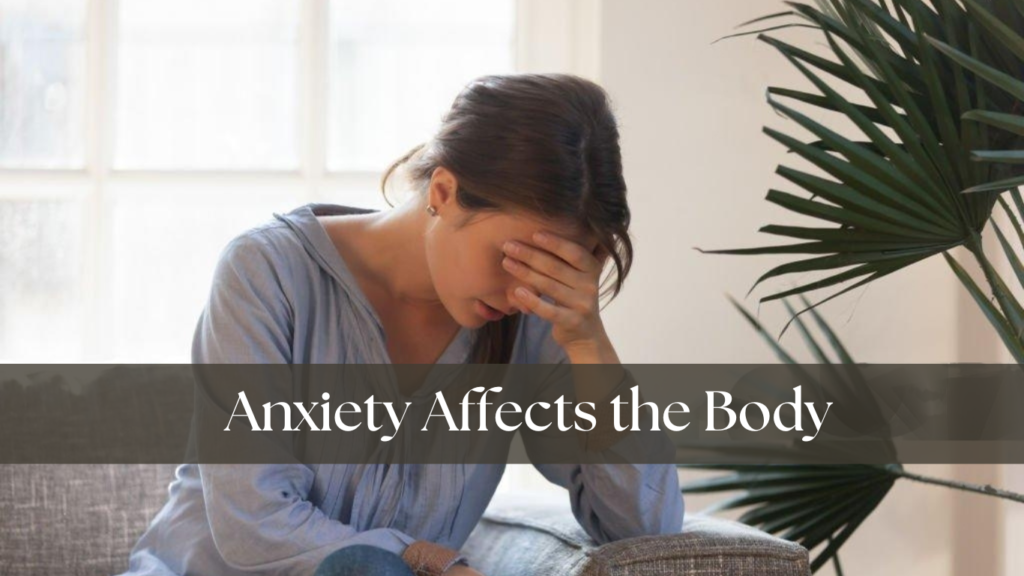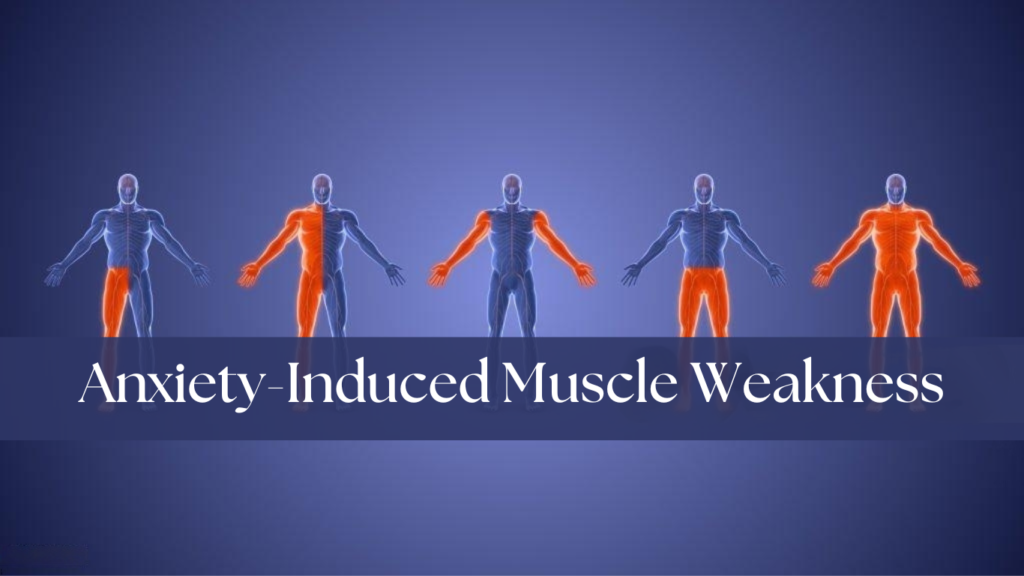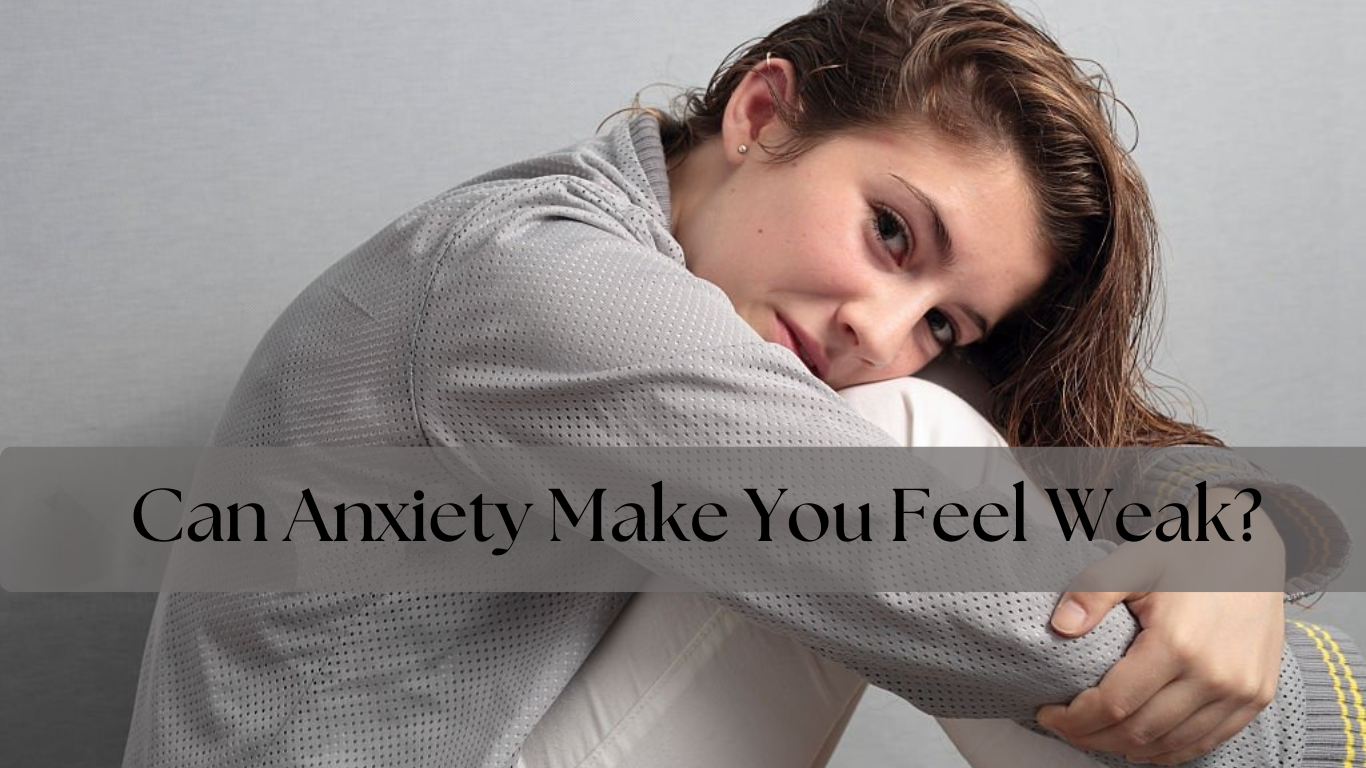Anxiety is a natural response to stress, but when it becomes chronic or overwhelming, it can start to affect your body in ways you might not expect. One of the most troubling physical symptoms is weakness—feeling drained of energy, experiencing heavy or shaky limbs, and sometimes even struggling with simple movements. So, can anxiety make you feel weak? Absolutely. In this article, we’ll dive deep into how anxiety impacts your body, specifically how it leads to physical weakness, and explore ways you can manage these symptoms.
What is Anxiety?
Anxiety is your body’s natural reaction to stress. It’s a feeling of fear or apprehension about what’s to come. While everyone experiences anxiety at some point, such as before a big event or during stressful situations, anxiety becomes a problem when it’s constant or out of proportion to the situation.
Types of Anxiety Disorders
There are several types of anxiety disorders, each with its own specific set of symptoms:
- Generalized Anxiety Disorder: Chronic, excessive worry about everyday things.
- Panic Disorder: Sudden, intense episodes of fear, known as panic attacks.
- Social Anxiety Disorder: Extreme fear of social situations.
- Specific Phobias: Intense fear of a particular object or situation.
Common Symptoms of Anxiety
While anxiety affects everyone differently, some common symptoms include:
- Racing thoughts
- Restlessness
- Rapid heartbeat
- Sweating
- Muscle tension
- Fatigue or physical weakness
How Anxiety Affects the Body

The Fight-or-Flight Response
When you’re anxious, your body goes into “fight-or-flight” mode, releasing hormones like adrenaline and cortisol. These hormones prepare your body to either face the threat or run from it. While this response is helpful in short bursts, such as when you need to react quickly to danger, prolonged anxiety keeps your body in this state, which can wear down your muscles and leave you feeling weak.
Hormonal Changes During Anxiety
The constant flood of stress hormones like cortisol can cause muscle tension, fatigue, and feelings of weakness. This is because cortisol, in particular, is designed to give your body the energy it needs during stress—but over time, it can break down muscle tissue, leading to physical exhaustion.
How Anxiety Leads to Physical Weakness
Muscle Tension and Fatigue
Anxiety often causes your muscles to tense up, especially in areas like your neck, shoulders, and back. Over time, this constant muscle tension can lead to fatigue and a feeling of weakness.
Adrenaline Surges and Crashes
During anxious moments, your body pumps out adrenaline to help you deal with what it perceives as a threat. After the initial surge of adrenaline wears off, you may experience a crash, which can leave you feeling drained and physically weak.
Sleep Disturbances
Anxiety can interfere with your ability to get a good night’s sleep. Chronic lack of sleep leaves your body tired and more prone to physical weakness during the day.
Hyperventilation and Dizziness
Anxiety can also cause hyperventilation, or rapid, shallow breathing. This reduces the amount of oxygen reaching your muscles, which can cause dizziness and weakness, particularly in your arms and legs.
Physical Symptoms of Anxiety
The physical effects of anxiety can be just as debilitating as the mental ones. Some common physical symptoms include:
- Weakness in Limbs: You may feel like your arms and legs are too heavy or tired to move.
- Shakiness and Trembling: Anxiety often causes your hands or body to shake, making you feel physically unstable.
- Dizziness or Lightheadedness: Anxiety can make you feel dizzy, especially if you’re hyperventilating.
- Fatigue and Lack of Energy: Chronic anxiety drains your energy, leaving you feeling physically weak.
Anxiety-Induced Muscle Weakness

The Role of Cortisol
Cortisol, the stress hormone, plays a significant role in anxiety-related muscle weakness. Prolonged exposure to high levels of cortisol can lead to muscle atrophy, making you feel weak over time.
Muscle Tension and Weakness
When your muscles are constantly tense due to anxiety, they don’t get a chance to relax. Over time, this can lead to muscle fatigue, leaving you feeling physically weak.
Difference Between Emotional and Physical Weakness
It’s important to distinguish between emotional and physical weakness. Emotional weakness refers to the feelings of hopelessness or being overwhelmed, whereas physical weakness is an actual loss of muscle strength. Anxiety can cause both, but they’re not always linked.
Panic Attacks and Sudden Weakness
Panic attacks can cause an intense feeling of weakness, both during and after the attack. When a panic attack hits, your body floods with adrenaline, and after the attack, you may feel physically exhausted, shaky, and weak.
Managing Anxiety and Physical Weakness
Breathing Exercises
Breathing exercises can help calm your nervous system and reduce the physical symptoms of anxiety, including weakness. Try deep breathing or box breathing to manage your anxiety in real time.
Physical Activity
Exercise can help reduce anxiety and build up your physical strength. Regular activity releases endorphins, which are natural mood boosters, and helps alleviate the physical symptoms of anxiety.
Conclusion
Anxiety can absolutely make you feel weak, both physically and emotionally. This weakness is often a result of prolonged muscle tension, adrenaline surges, and fatigue caused by chronic stress. By understanding how anxiety affects your body, you can take steps to manage these symptoms and improve your overall well-being.
FAQs
1. Can anxiety cause muscle weakness that lasts all day?
Yes, anxiety can cause prolonged muscle weakness, especially if you’re experiencing chronic stress or lack of sleep.
2. How do I regain strength after anxiety?
Rest, proper nutrition, and regular exercise can help you regain your strength after an anxiety episode.
3. What foods help reduce anxiety-related weakness?
Foods rich in magnesium, like leafy greens and nuts, can help calm your muscles and reduce anxiety. Also, staying hydrated is essential.
4. Can anxiety cause permanent physical weakness?
Anxiety does not typically cause permanent physical weakness, but long-term stress can lead to muscle fatigue and other physical symptoms that may need medical attention.

